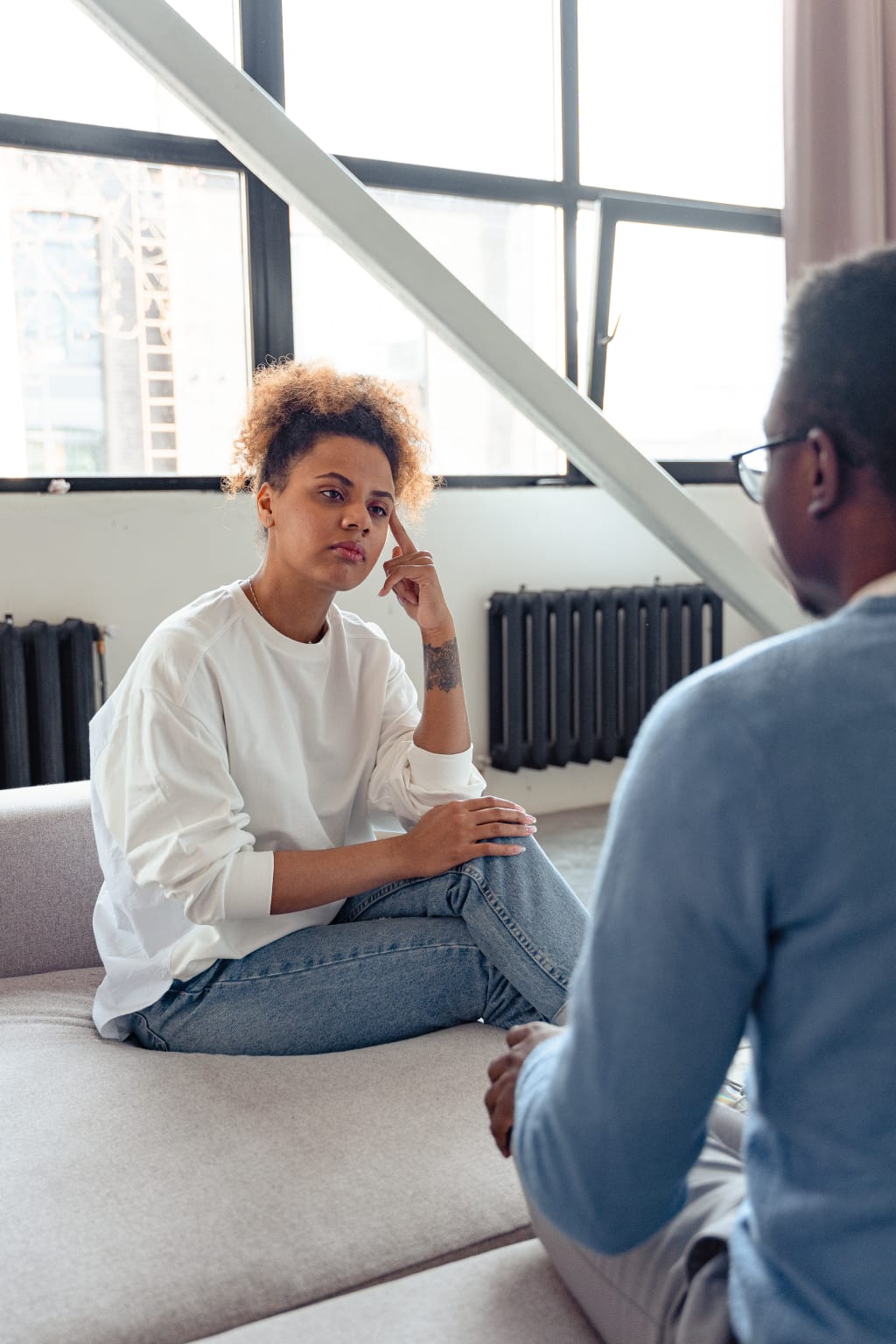How to know if you're in a toxic relationship?
A toxic relationship is one that is harmful to your physical, emotional, or mental well-being. It can be difficult to recognize a toxic relationship, especially if you're .....

1.Introduction.
A toxic relationship is one that is harmful to your physical, emotional, or mental well-being. It can be difficult to recognize a toxic relationship, especially if you're in the midst of one, but it's important to be aware of the signs in order to protect yourself and your happiness. It's also important to note that this article is not a substitute for professional help, and if you're in a dangerous or abusive relationship, it's crucial to seek help from a trusted source.
2.Characteristics of a toxic relationship
There are certain characteristics that are common in toxic relationships. These can include:
1.Constant criticism, belittling, or disrespect: In a healthy relationship, partners should be able to express their feelings and opinions without fear of being judged or ridiculed. In a toxic relationship, one partner may constantly criticize or belittle the other, making them feel unworthy or incompetent. Disrespect can also take the form of verbal abuse, such as shouting or using derogatory language.
2.Inability to compromise or meet each other's needs, leading to a constant power struggle: In a healthy relationship, partners should be able to work together to meet each other's needs and find common ground. In a toxic relationship, one partner may be unwilling to compromise or meet the other's needs, leading to a constant power struggle.
3.Lack of empathy or concern for your feelings: Empathy is the ability to understand and share the feelings of another person. In a toxic relationship, one partner may lack empathy or be indifferent to the other's feelings, leading to a lack of emotional connection and support.
4.Gaslighting or manipulation: Gaslighting is a form of manipulation in which one partner tries to make the other doubt their own perceptions or memories. This can be done through lies, denial, or constant shifting of the blame. Gaslighting can be highly damaging to a person's sense of self and can lead to feelings of confusion and insecurity.
5.Extreme jealousy or possessiveness: Jealousy and possessiveness can be common in any relationship, but in a toxic relationship, these feelings may be extreme and controlling. One partner may try to limit the other's independence or freedom, leading to a feeling of suffocation.
6.Physical, emotional, or sexual abuse: Physical, emotional, and sexual abuse are all forms of abuse that can occur in a toxic relationship. Physical abuse includes any form of physical harm, such as hitting, slapping, or pushing. Emotional abuse includes behaviors that damage a person's self-worth or emotional well-being, such as manipulating, belittling, or threatening. Sexual abuse includes any form of sexual contact without consent, such as rape or sexual assault.
3.Signs that you may be in a toxic relationship
It can be difficult to recognize a toxic relationship, especially if you're in the midst of one. Here are some signs that you may be in a toxic relationship:
You feel isolated from your friends and family: A toxic partner may try to isolate you from your support system, either by limiting your contact with them or by making you feel ashamed or guilty for spending time with them. This can lead to feelings of loneliness and isolation.
You feel like you're walking on eggshells around your partner: In a toxic relationship, you may feel like you have to constantly watch what you say or do in order to avoid angering your partner. This can lead to feelings of anxiety and stress.
You're constantly apologizing or making excuses for your partner's behavior: In a healthy relationship, both partners should take responsibility for their actions and be willing to apologize when necessary.
In a toxic relationship, you may find yourself constantly apologizing or making excuses for your partner's behavior, even when it's not your fault. This can be a sign that you're enabling or tolerating toxic behavior.
You feel drained or drained after interacting with your partner: In a healthy relationship, you should feel energized and uplifted after spending time with your partner. In a toxic relationship, you may feel drained or exhausted after interacting with your partner, even if you were initially looking forward to the interaction. This can be a sign that the relationship is taking a toll on your well-being.
You've lost your sense of self or independence: In a toxic relationship, one partner may try to control or dominate the other, leading to a loss of independence and a sense of self. This can include making decisions for the other partner, limiting their access to resources or support, or trying to dictate their appearance or behavior.
You're afraid of your partner or feel unsafe: Fear or a sense of danger is a clear sign that you're in a toxic and potentially abusive relationship. If you feel afraid of your partner or fear for your safety, it's important to seek help immediately.
4.Steps to take if you're in a toxic relationship
If you're in a toxic relationship, it's important to take steps to protect yourself and your well-being. Here are some steps you can take:
- Seek support from friends, family, or a professional therapist: It can be difficult to navigate a toxic relationship on your own, so it's important to reach out to a support system for guidance and advice. This could include trusted friends or family members, or a professional therapist or counselor who can provide a safe and confidential space to discuss your experiences and feelings. Having someone to talk to can help you gain perspective, cope with difficult emotions, and make a plan for how to move forward.
- Set boundaries with your partner and communicate your needs: In a toxic relationship, it's common for one partner to dominate or control the other. It's important to establish and communicate your own boundaries with your partner, and to make it clear what behavior is and is not acceptable. This can include setting limits on communication, setting aside alone time, or making decisions about how to spend your time and energy. It's also important to express your needs and desires to your partner, and to be open to negotiation and compromise.
- Consider ending the relationship if it is not safe or healthy: If your partner is abusive or harmful to you in any way, it may be necessary to end the relationship in order to protect yourself and your well-being. This can be a difficult and emotional decision, and it's important to have a plan in place for your safety and support. Consider reaching out to a domestic violence hotline or seeking help from a trusted friend or family member.
- Work on improving your own self-esteem and self-worth: Toxic relationships can take a toll on your self-esteem and self-worth. It's important to actively work on building these qualities within yourself, even if you're still in the relationship. This can include practicing self-care, setting goals and working towards them, and seeking out positive affirmations and reinforcement from trusted sources.
- Practice self-care and prioritize your own well-being: It's essential to prioritize your own well-being while in a toxic relationship. This can include taking breaks from the relationship to recharge, finding healthy ways to cope with stress and emotions, and making time for activities that bring you joy and fulfillment. It's important to remember that you deserve to be treated with respect and kindness, and to prioritize your own happiness and well-being.
THANKS FOR READING!
About the Creator
James Foster
Hello, Writing is my passion. I love working with words to find the ideal way to express thoughts and feelings. I produce stories that are sharp, effective, and captivating. that engages and impresses the reader !!!






Comments (1)
👌👌👌👌.......